-
Product Name
Anti-FGFR2 antibody
- Documents
-
Description
Mouse monoclonal antibody to FGFR2
-
Tested applications
WB, ICC, IHC-P
-
Species reactivity
Human, Mouse
-
Alternative names
BEK antibody; JWS antibody; BBDS antibody; CEK3 antibody; CFD1 antibody; ECT1 antibody; KGFR antibody; TK14 antibody; TK25 antibody; BFR-1 antibody; CD332 antibody; K-SAM antibody
-
Isotype
Mouse IgG1
-
Preparation
This antigen of this antibody was recombinant protein
-
Clonality
Monoclonal
-
Formulation
Liquid, 1*PBS (pH7.4), 0.2% BSA, 40% Glycerol. Preservative: 0.05% Sodium Azide.
-
Storage instructions
Store at +4℃ after thawing. Aliquot store at -20℃ or -80℃. Avoid repeated freeze / thaw cycles.
-
Applications
WB: 1:500
ICC: 1:100-1:200
IHC-P: 1:100-1:200
-
Validations
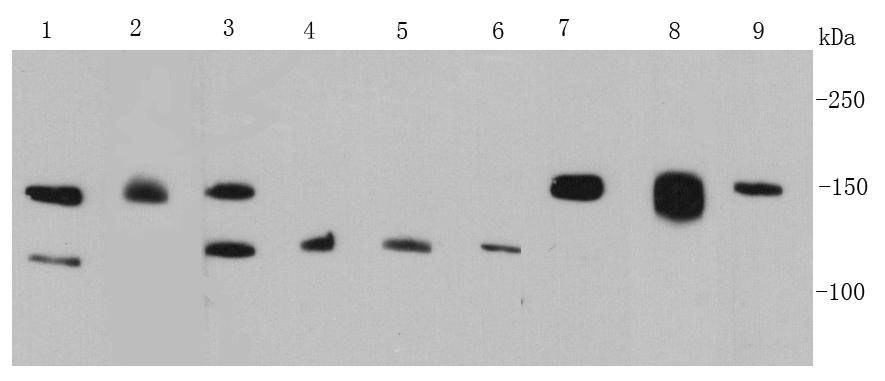
Fig1: Western blot analysis of FGFR2 on different cell lysates using anti-FGFR2 antibody at 1/500 dilution.; Positive control:; Lane 1: MCF-7; Lane 2: K562; Lane 3: Hela; Lane 4: HepG2; Lane 5: A431; Lane 6: A549; Lane 7: NIH/3T3; Lane 8: Jurkat; Lane 9: Mouse brain
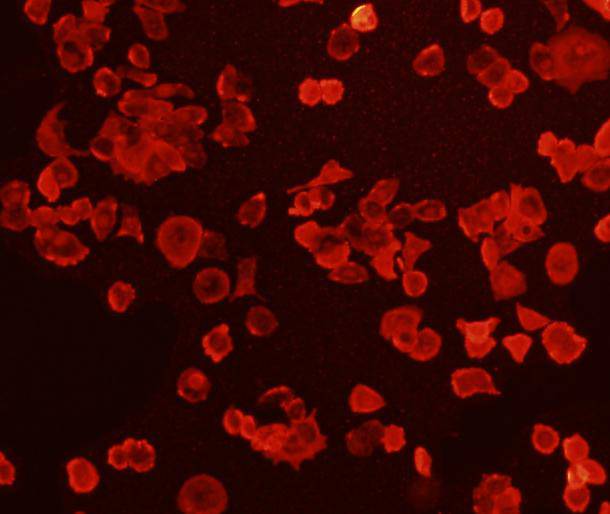
Fig2: ICC staining of FGFR2 in MCF-7 cells (red). Cells were fixed in paraformaldehyde, permeabilised with 0.25% Triton X100/PBS.
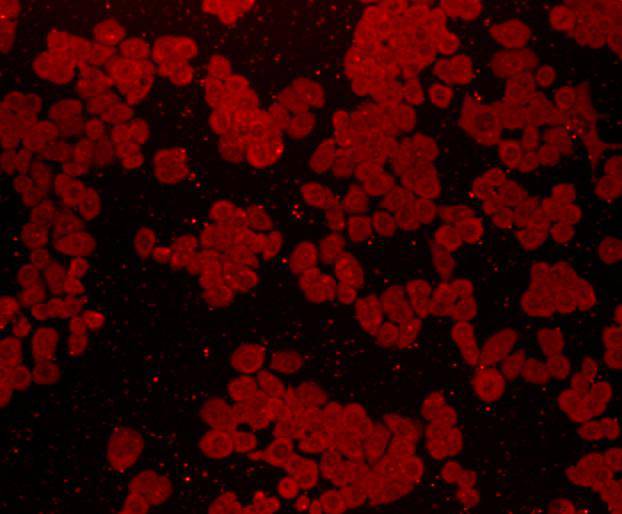
Fig3: ICC staining of FGFR2 in Ags cells (red). Cells were fixed in paraformaldehyde, permeabilised with 0.25% Triton X100/PBS.
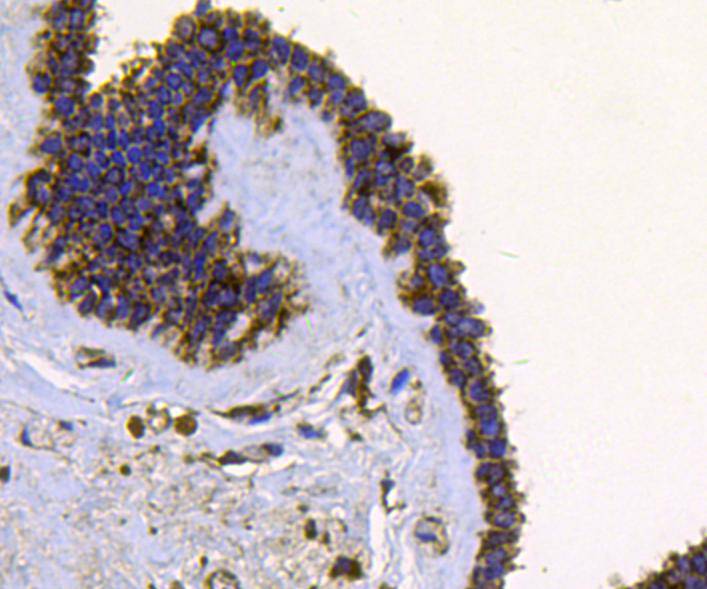
Fig4: Immunohistochemical analysis of paraffin-embedded human breast carcinoma tissue using anti-FGFR2 antibody. Counter stained with hematoxylin.
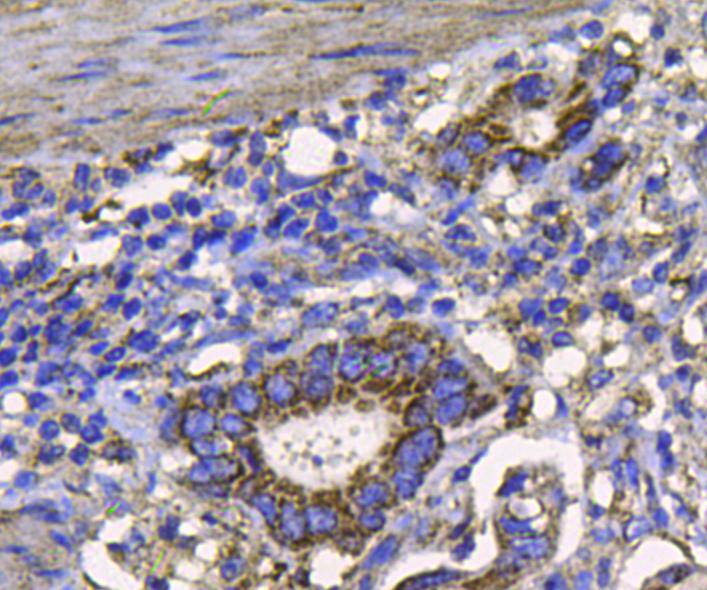
Fig5: Immunohistochemical analysis of paraffin-embedded human stomach carcinoma tissue using anti-FGFR2 antibody. Counter stained with hematoxylin.
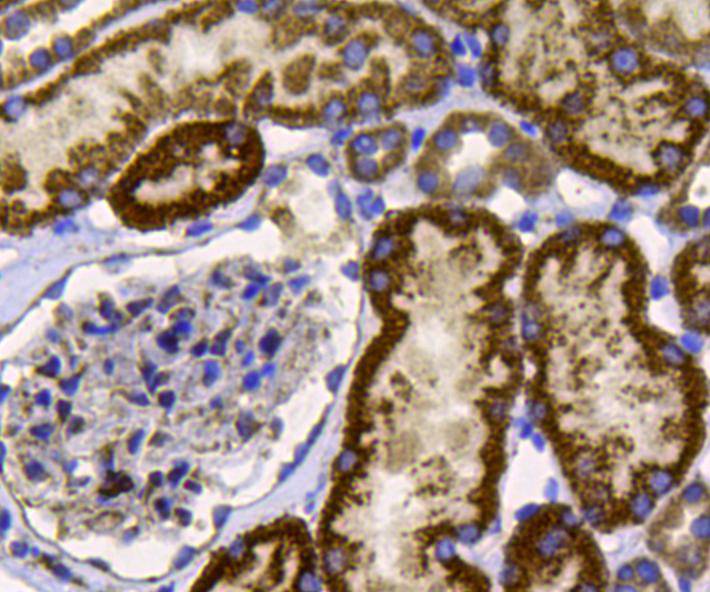
Fig6: Immunohistochemical analysis of paraffin-embedded human kidney tissue using anti-FGFR2 antibody. Counter stained with hematoxylin.
- Background
-
References
- Fibroblast growth factor signalling: from development to cancer. Turner N., Grose R. Nat. Rev. Cancer 10:116-129(2010)
- FGFR2 abnormalities underlie a spectrum of bone, skin, and cancer pathologies. Katoh M. J. Invest. Dermatol. 129:1861-1867(2009)
- Cbl-mediated degradation of Lyn and Fyn induced by constitutive fibroblast growth factor receptor-2 activation supports osteoblast differentiation. Kaabeche K., Lemonnier J., Le Mee S., Caverzasio J., Marie P.J. J. Biol. Chem. 279:36259-36267(2004)
Related Products / Services
Please note: All products are "FOR RESEARCH USE ONLY AND ARE NOT INTENDED FOR DIAGNOSTIC OR THERAPEUTIC USE"
